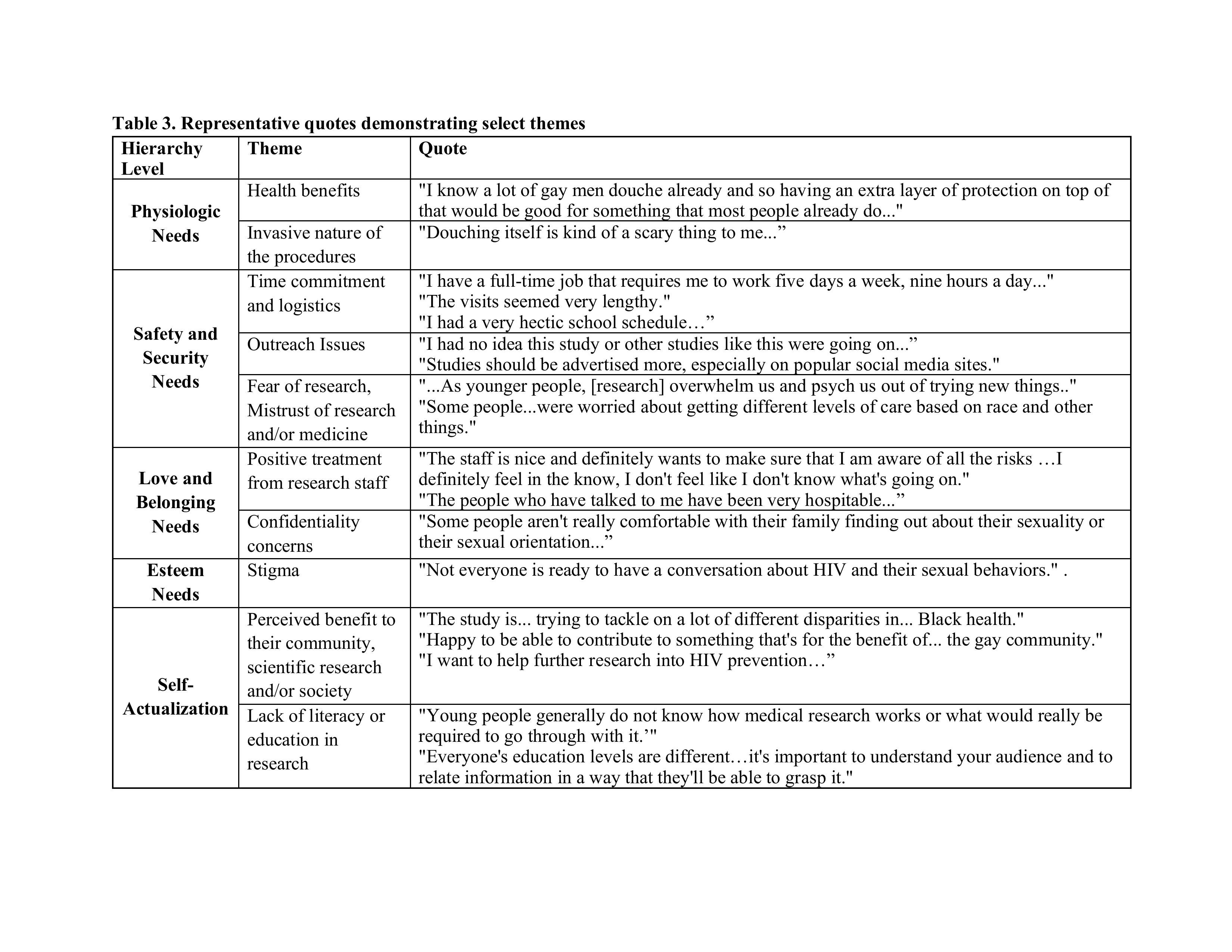Adolescent Medicine 5: Potpourri
Session: Adolescent Medicine 5: Potpourri
139 - Empowering Young Men Who Have Sex With Men to Participate in Biomedical Research
Monday, April 28, 2025
7:00am - 9:15am HST
Publication Number: 139.4827
Joseph T. Whelihan, Children's Hospital of Philadelphia, Philadelphia, PA, United States; Jose Bauermeister, University of Pennsylvania, Philadelphia, PA, United States; Willey Y. Lin, University of Pennsylvania School of Nursing, Philadelphia, PA, United States; Jessica L. Webster, University of Pennsylvania, philadelphia, PA, United States; Thuy Anderson, Johns Hopkins University School of Medicine, Bel AIr, MD, United States; Jessica Coleman Lewis, Johns Hopkins University School of Medicine, Baltimore, MD, United States; Allison Agwu, Johns Hopkins University School of Medicine, Baltimore, MD, United States; Renata Arrington Sanders, Childrens Hospital of Philadelphia, Philadelphia, PA, United States

Joseph T. Whelihan, Jr., MD FAAP (he/him/his)
Adolescent Medicine Fellow
Children's Hospital of Philadelphia
Philadelphia, Pennsylvania, United States
Presenting Author(s)
Background: Young men who have sex with men (YMSM) remain underrepresented in biomedical research despite their unique health needs. Increasing their participation is essential to ensure effective interventions tailored to their experiences and motivations. This study examines factors influencing YMSM participation in clinical research, including the role of staff connection, as part of a broader goal to enhance youth inclusion in pediatric-focused studies.
Objective: To explore the motivations, barriers, and facilitating factors influencing participation among YMSM in biomedical research. This study aims to identify how general study experiences, including staff interactions and logistical support, impact engagement and apply these findings to enhance pediatric-focused research strategies for more inclusive and effective recruitment.
Design/Methods: As part of ATN 163, we conducted semi-structured interviews with 44 YMSM, ages 18 to 24, eligible for a Phase I HIV pre-exposure prophylaxis trial. Interviews explored motivations for and barriers to participation, including how perceived community impact, safety, and research literacy affect engagement. Through thematic analysis grounded in Maslow's hierarchy of needs, we assessed how needs at different levels influenced participation.
Results: Motivations for participation primarily reflected higher-order needs, such as self-actualization, with many participants motivated by a desire to support their community and contribute to research. Positive interactions with research staff emerged as an important facilitator, fostering trust and alleviating concerns about confidentiality and procedural risks. Table 1 provides demographic details of the study participants. Barriers to participation often stemmed from lower-order needs, including safety concerns and logistical challenges such as time and financial commitments and limited research knowledge. Participants emphasized the need for more youth-friendly outreach efforts and logistical support, such as flexible scheduling and transportation options, to ease engagement and build trust (Table 2). Participants also shared insightful quotes on these themes, which are detailed in Table 3.
Conclusion(s): Pediatric-focused biomedical research involving YMSM must address the full spectrum of needs to improve engagement. Enhancing staff-participant connections and building trust through transparent communication is critical to fostering a supportive research environment for young participants. Incorporating these elements will address immediate barriers and promote a long-term commitment to inclusive and equitable research practices.
Table 1. Demographic Characteristics of Sample
2 This question was asked as a single multi-option question, so the numbers do not add to 40
Table 3. Representative quotes demonstrating select themes


